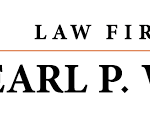Real estate attorneys specialize in drafting and negotiating purchase contracts, conducting title searches and overseeing closings – meaning they can save you from lots of hassle when buying investment properties.
Many attorneys start with the standard contract used by real estate agents and add riders with terms to be negotiated. They then conduct title searches to make sure that title to the property is clear.
Contract of Sale
Contract of Sale agreements are legal binding documents that outline the terms of any real estate transaction and provide a legal framework to resolve disputes that arise during its completion. A well-drafted Contract protects both buyers and sellers alike.
Contracts typically outline purchase price, payment details and transfer of ownership details. Some agreements contain contingencies like home inspection and financing approval that must be fulfilled before closing a sale can take place.
After signing a contract, the Buyer provides a deposit check to the Seller’s attorney – known as a “down payment.” The attorney then orders a title report and survey or inspection report and addresses any outstanding issues before closing date via Riders added to the Contract of Sale.
Title Search
An attorney or title company conducts a title search to ensure that any property you purchase is free from legal claims and associated financial liabilities, such as property liens, judgments and loans attached to it. Failing to address these matters before closing can lead to disputes or financial liabilities for buyers in the form of lawsuits and legal liabilities.
Title searches use public records to establish who legally owns property, as well as identify potential issues such as liens, judgments or unpaid taxes that might prevent its transfer without legal hassles. Conducting your own title search can be time consuming as it requires reviewing multiple legal documents and court records.
Home Inspection
Home inspectors evaluate the state of a house and its components, including roof, attic, foundation, exterior walls, plumbing, electrical and HVAC systems. While they don’t open walls or dismantle any equipment themselves, home inspectors usually adhere to standard practices when conducting their examinations and may suggest additional tests such as those for radon, asbestos and lead paint inspections.
Buyers typically pay for home inspections; however, in a hot seller’s market they may waive this contingency and make offers “as is.” It’s generally recommended that buyers accompany the home inspector during his or her inspection so as to gain a better understanding of the property; once complete you can then make an informed decision regarding purchasing it; should problems be revealed they can negotiate lower purchase prices or request repairs as necessary.
Mortgage
Mortgage is the legal term for when a borrower pledges his or her home as security against debt, giving the lender the right to seize it in case of default and sell it off in order to recoup its financial losses.
Real estate agents recommend that prospective borrowers get prequalified for a mortgage before searching for houses, so that they have an idea of their budget and can determine what houses may fit within it.
Co-ops are an increasingly common trend in New York and require attorneys who have experience handling the unique legal issues they present, including bylaws, stock certificates and mortgage restrictions specific to co-ops. Co-op buyers should understand basic business law as well as any risks involved with investing. A title company conducts thorough state and county records research in order to verify whether a property being purchased is free from liens or obligations that might threaten its title.
Closing
Closing is the final stage in any real estate transaction and involves all parties signing their respective contract of sale, mortgage documents and any legal paperwork imposed due to regulatory requirements. Engaging an attorney during closing can ensure all documents are correct and complete while also helping resolve any issues from home inspection, title search or changes in loan terms that arise during this process.
Contract of sale documents should clearly outline price, property description and any contingencies (home inspection, financing, appraisal etc). They can also contain termination clauses allowing either party to exit without incurring financial penalty; typically an earnest money deposit will accompany each contract of sale agreement; this should typically be held escrow by either a closing agent or attorney until closing has taken place.







